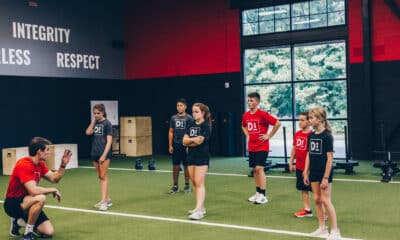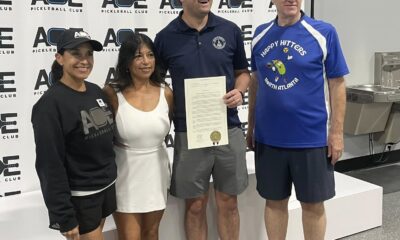Business
New Huge Medical Campus, 1200 new jobs; Two Autonomous Vehicle Companies; and National Attention
Published
4 years agoon
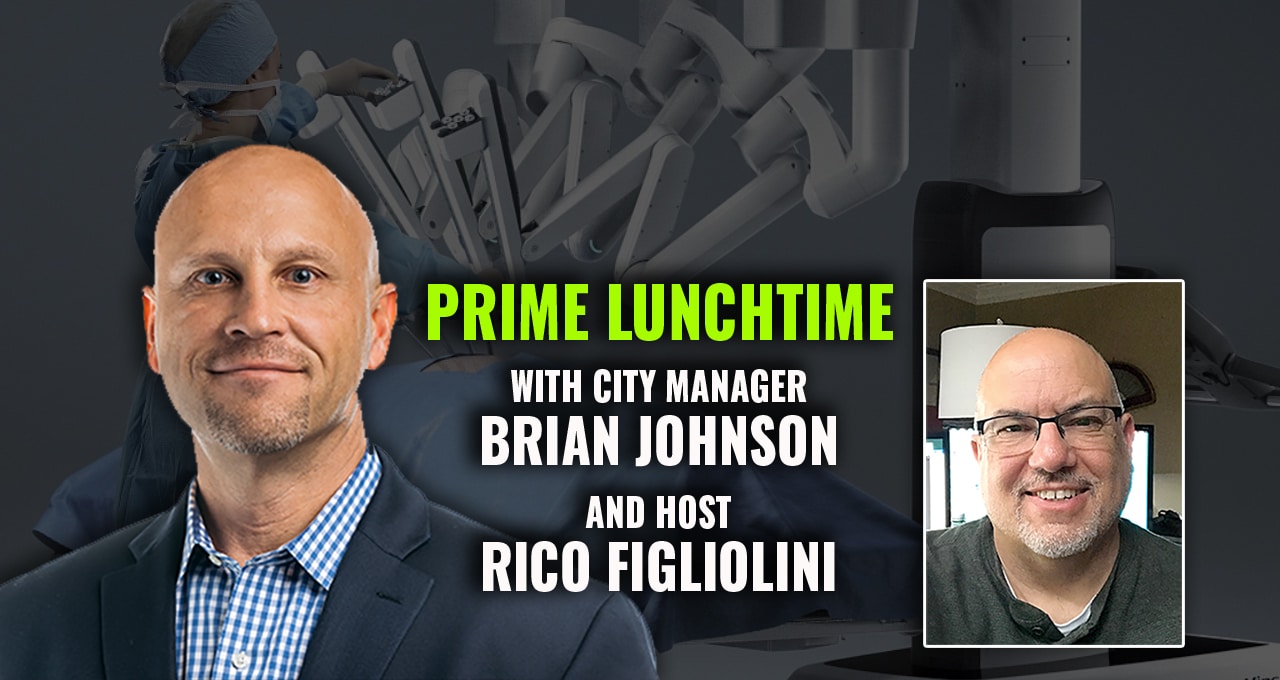
What company just announced a $500 Million investment to build a medical campus in Peachtree Corners and add 1200 new jobs to the area? What 2 models of autonomous vehicles will make their debut in late August on Curiosity Lab’s 5G enabled 3.0-mile test track? Plus trees, trees, trees. Some talk about Georgia Power and continued tree removal and trimming.
Timestamp:
[00:00:30] – Opening
[00:01:28] – Intuitive Surgical Coming to Peachtree Corners
[00:33:04] – New Autonomous Vehicles
[00:39:42] – Georgia Power Tree Removal
[00:48:14] – Closing
“I know I beat the drum of Curiosity Lab merely because this magnet for activity that we created has a name. Other people have named things too at different times with different things. But I bring it up just so that the residents here are kept updated on the benefits that we derive from having a reason for certain companies to come and kick the tires here.”
Brian johnson
podcast transcript:
Rico: [00:00:30] Hi everyone. This is Rico Figliolini host of Peachtree Corners Life, and today with Prime Lunchtime with the City Manager, Brian Johnson. Before we get into that, just want to say thank you for everyone’s support on Peachtree Corners Magazine, which is a host of these podcasts. And also that today we’ll be talking about some really exciting news that’s going to be happening over the next few days. Certainly one that was announced today about a company here in Peachtree Corners that is going to be expanding into huge medical campus. So we’re going to be discussing that. We’re also going to be discussing a little bit about Curiosity Lab and the new vehicles that are going to be happening and coming this year to Technology Park. So we’ll be discussing that as well. For the first time in the expanded probably the largest amount of autonomous vehicles on live, living, street like ours in the nation, if not in the country, but certainly in the nation. So we’re going to be talking about those things today. So let me bring on Brian, thanks for joining me.
Brian: [00:01:27] Thanks for having me.
Rico: [00:01:28] Yeah, this is good. Every month that we do this it gets people to know a little bit more about what’s going on in Peachtree Corners. Also, I just want to remind people that I make my commentaries because I make my commentaries. This is my show. and if I have a comment about something I’m going to make it. People will disagree, but I just want people to understand Peachtree Corners Life, Prime Lunchtime with the City Manager, it’s something where I can make my comments about issues of the day. And I just want people to know that. Let’s talk about the first thing that’s happening, which is unbelievable. You were telling me, sharing with me this morning a little bit about it just before the show. And it’s a company that has existed here that’s based in Silicon valley, has an office here, but this is a huge thing that’s happening. So tell us what happened today with the governor and all this.
Brian: [00:02:14] Well, let me back up six months and start this story because there was a big announcement by the state of Georgia about a company that exists here in Peachtree Corners called Intuitive, a publicly traded company. And they are a maker of robotic assisted surgical suites. There’s a number of them. The most famous, if you will, the one that’s sold the most units, most prevalent out there is called the DaVinci device. And this is a operating suite in which the patient sits underneath a covering in which there are four arms that come out. And this is used for patients that are undergoing soft tissue surgery. So it’s not for your bones. And oftentimes it’s a very complicated surgery that would normally either require a very, very, granular level of skill. Like say excising a tumor around something that’s very sensitive. Or it would normally require cracking somebody’s chest open, like splitting them all the way to get to some organ that’s difficult to get to. Instead they put in four ports, if you will. Almost like the size of a straw, maybe a little bit bigger into the torso, the area that they’re going to operate. One of them contains a camera and the other three contain arms. Almost like a snake in that once it’s through the port, into the body, the head of that device can move wherever and they can snake it wherever they need to. And then the end of it has removable tips. It could be a blade. It could be scissors. It could be claws, it could be a cauterizing device. And so it can go places in there in a less invasive way then cracking the thing open. The other interesting part about the DaVinci device is the surgeon is actually not over the patient. The surgeon is sitting next to the patient, looking into, goggles with their hands, into these grips and what their hands are doing is what’s actually happening next to them inside the body. And they look in the camera.
Rico: [00:04:41] That’s amazing.
Brian: [00:04:41] It is amazing.
Rico: [00:04:43] It’s almost like virtual reality working on a patient.
Brian: [00:04:46] Robotic assisted surgery is certainly the wave of the future and where there’s going to be more and more of it. So, you know, it’s used for those types of things. This company is headquartered in Sunnyvale, California. And about six months ago, they started a process of building an east coast campus. They did not want to expand in California, they are in a very aggressive expansion mode. And a lot of it is because they are doing very well and they have market share in this particular market and they want to get in to hospitals while the competition is as far behind them as they currently are. So they’re in an aggressive expansion mode. They decided they did not want to expand into California for their own reasons. And so they started a process of identifying where on the east coast they wanted to go. And so about six months ago, they approached the city and they informed us, essentially that they were taking a look at places. And prior to, and to a degree, sometime after they did make their decision, which they said would be in the not too distant future. They also informed us that they had purchased one of the buildings right behind where their current office is.
Rico: [00:06:19] Which for those people that don’t know is across from the post office.
Brian: [00:06:23] Right next to the USTA building on Spalding, basically at the corner of Spalding and Data drive. And they also, one of the buildings they purchased behind there, the one directly on Spalding, they wanted to gut it and they want to start assembling the DaVinci devices at this. Not manufacturing it, but taking all the component and chip sets and having engineers assemble them together and then do quality control testing. And then when a hospital buys the device, the device ships to the hospital. Then they install the device in the hospital. And then part of the purchase is, there is training by surgeons that go and get trained on how to use the device from hospitals that bought it. And when they invited us over there, the ‘they’ is the mayor and I, they actually walked us through their current facility. And that building that’s right on Spalding is unique in that one of the floors we had to essentially get covered, almost like scrubbing into surgery, to walk down one of the halls. The reason we had to do it is because it’s set up, it almost looks like a hospital. If you’re walking down the hallway of a hospital. And each of the rooms down the hall actually had a surgical room in it, a surgical suite with the DaVinci device and on the operating table was a cadaver. And that’s where surgeons come in and they actually practice using the DaVinci device and get trained and certified in how to use it. And then they go back to the hospital and they start using them for surgeries. Right here in Peachtree Corners. And the mayor and I were both like, we knew what Intuitive was, but we didn’t know what all they were doing here. So they’re going to assemble those devices and then they’re going to do it on the east coast. So we knew there were at least going to do that. But they said, look, this assembly that we’re wanting to set up, it’s like temporary. We are really in a rush to get it up and running, because again, we have market share. Whatever location we choose as our east coast headquarters, that’s going to be where we’re going to build the permanent assembly plant. So we were like, okay, this is temporary. Whether they expand here or not, it’s temporary, but so they talked to us about speed. And so we started, I gave them some assurances, talk to my staff, and we started doing the permitting. Well concurrent to that, they started a process of elimination, ‘they’ being Intuitive. And got the locations that they wanted to expand to down to two locations, one here in Peachtree Corners and one in a city in the research triangle area of North Carolina. Raleigh, Durham, Chapel Hill area. And when they got it down to that, those two, then they retained a firm, Deloitte, to be their agent and they officially submitted an investment commitment to both states and they asked the state to come back with the state’s incentive package. What Intuitive committed to in their investment proposal was for them to create about a $600 million campus and to create 1200 or more jobs with an average salary of these 1200 or more jobs of $130,000.
Rico: [00:10:21] It’s just phenomenal. That’s better than Amazon. It’s unbelievable. So they’re going to have a big campus. How big is this campus going to be?
Brian: [00:10:30] I can’t remember. I want to say it’s going to be like six buildings- ish. So what you’re going to have here is you’re going to have the assembly building where they’re assembling. Their sales team for the east coast is going to operate out of here. They’re going to have research and development at this location. They’re going to have a number, not all, but some of their C-suite people are going to be here. The chief technology officer, the chief operating officer, chief sales officer, all those C-suite. Some of them are going to come here. They’re going to also have all of their training. So another by-product of this is they’re building a much larger version of that floor that I just told you, for people to come in, for surgeons to come in and train. And so the turnover on a regular basis of surgeons coming into the city to train for a week or more, depending on what level, they’re staying in our local hotels.
Rico: [00:11:39] And they’re coming from all over the country.
Brian: [00:11:40] They’re all over the east coast, however far there. But they’re coming from all over the country. But again, they come to the city for a temporary period of time and they’re going to stay in our hotels. So we not only have permanent 1200 or more jobs at the average salary that they are, but then you’ve got all of this reoccurring temporary hotel activity of these surgeons coming into town to get trained. And yes, this was a very interesting project. And so the state of Georgia. said, receive, we’ll get back to you. And we started the process. And so the city, the county, and the state. Well, we first got together and we came up with an incentive package that we would offer back. And the incentive package was presented to Intuitive at an all day meeting amongst representatives from the city, the county, and the state, and from the department of economic development. And then Intuitive had some senior people fly in from Sunnyvale, led by their chief finance officer. And the purpose was to talk incentives. And what was strong enough? What was it? All that kind of stuff. And Deloitte, they had a number of representatives from Deloitte, from various offices in the country that concentrated on certain things and we presented ours. And, the mirror image of this happened in North Carolina.
Rico: [00:13:13] Sure. What were some of the major incentives? Or major incentives that the state provided and the county and the city?
Brian: [00:13:20] So I’ll start with the city. So we did a waiver with not to exceeds of certain permit and inspection fees. So regulatory fees. So our incentives, especially since we don’t have property tax, city property tax, our incentives were on the regulatory side. And it was all in the form of what future revenue that would have been owed us or future permit fees, inspection fees that would have been owed us. And we waived it. I think we were do with the value of all the construction. We’re going to be due around $6 million in permitted inspection fees over the $600 million or so campus.
Rico: [00:14:07] That could take over several years, three to four years.
Brian: [00:14:10] That’s correct. I think 2024 is their date for them to be done with all this. So it would be over multiple years, obviously. And this was total, but we capped it at 3 million. So about half. And we waived stormwater user fees, which will be of course generated off of the impervious surface that they are going to have on their campus. And don’t let me forget about talking about trees and all that kind of stuff, how this will play out. But anyway, we waived those fees up to a certain maximum. I think it will essentially be, they won’t pay it for about three to four years and then they’ll start owing us that. That really was it. So it was all regulatory stuff. Oh, their business license. So based on their forecasted gross revenue, we waived their business license for again, we capped it. And of course our business license has a cap anyway, because if not, they would owe us a really significant amount of money every year. But I want to say, it’ll be to where they’ll go about three years before they would start owing us, just because it was a value. As soon as they hit that value, then that incentive goes away. Our total is, like three and a half million dollars.
Rico: [00:15:24] So it’s deferred to somewhat, to a degree not deferred payment, but they don’t start paying until maybe three years into their…
Brian: [00:15:32] That’s correct. It’s almost like Rico, you say, Hey, I want to think about doing something what’s in it for me? And like, you’re going to owe me money at some point Rico. I just won’t have you start paying it until the notional value of what you would have owed me gets to a certain point. And then that’s, I’m no longer going to waive that fee. Now you’ve got to start paying it forever. And we do that because if we got into a situation where somebody had an endless waiver of something, then you find that you all of a sudden don’t have any revenue from business license because you waived it for everybody at some point. And two during the construction phase, there’s a lot of upfront costs. I think we’ve all moved. You know, oftentimes when you move and build new things there’s other costs on the company that are not born by the local jurisdiction. They’re going to relocate a couple hundred, I believe employees from California to here when they open their assembly operation here. They hope within the next four to six months. That’s the one thing they have started on the existing building, demoing the inside. And that’s costs, that relocation costs for their employees that they have. And so we generally try to give them incentives that are tied to their expansion relocation phase. And then once all the dust settles, when they’re operating normal, then they need to start paying normal. So that’s what we’re doing.
Rico: [00:17:01] Just so that people understand, the 1200 jobs that they’re looking to create here, a few of them 200, 300 may be coming relocated from the west coast it sounds. But the majority of the jobs they’re saying they’re creating, these jobs here in Peachtree Corners for employment, new employment.
Brian: [00:17:20] That’s correct. I don’t believe that the 1200 jobs that they’ve committed to create include either 180 or 120 people who currently work in that building or the relocated. They’re talking about creating 1200.
Rico: [00:17:37] Excellent. Thanks for the clarification that’s even better. And they also have to live somewhere and who knows? A bit of them might decide to live in Peachtree Corners.
Brian: [00:17:45] I hope more than just a bit because we all like to live close to where we work and keep our little world small. So I hope more than just a bit live here.
Rico: [00:17:53] Yeah, so do I. And the other part of it is, so then, I’m used to maybe a little bit more in the weeds than other people, but I think we all understand that cities that bid for these things the same way, some people may have seen Amazon and how some cities bidded for Amazon’s east coast facility. To a degree, cities, states, counties are all competing for these types of jobs. Part of that norm, when a big company comes in to say what are you going to give me if I’m going to relocate to here versus let’s say Peachtree City or somewhere else. So you have to be competitive.
Brian: [00:18:22] Rico I’m glad you brought that up. That is an important point to make. And that is, first of all, this is very normal. This is how these companies do it. There is a reason why Intuitive retained Deloitte for a very specific period of time, a large accounting firm, to represent them in their quest to play locations against each other and say which one of you are going to be the one that ultimately gets is the highest bidder. It happens in about every industry you can think of. The good thing for us is again, we are only waiving an amount of fees that have not been paid. We’re not counting on it. And it’s just for the expansion part itself. Once they start operating and these things are all capped and they move on, they’re going to be the largest employer in Peachtree Corners. Right now, Siemens is probably the largest. They’re approaching a thousand total.
Rico: [00:19:28] Wow. So when they’re finished within three to four years, that number may even go up even.
Brian: [00:19:33] That’s correct. So then the county threw in, the county abated countywide property taxes that they charge for these parcels. They waived that for a period of time. And they ultimately came out and had a very aggressive offer. Millions of dollars in property tax abatement on that. Again, a lot of this is also for them, future revenue they’re not counting on because this is partly based off of the enhanced value of the property after they put $600 million into it. Again, a very common. And then the state, which has a much broader menu of incentives to choose from, they did actual cash. Where they straight up gave them cash in some cases. And then there were a number of state programs that they are going to be provided to help out like job, what is it, the Georgia? It’s called the work ready? But anyway, Georgia, as long as there’s a work ready state, we have a program. I can’t remember the name of it. It’s for the state. And there’s a state agency specifically to work with some of the universities, as the case may be, or some of the technical colleges to specifically tailor a skill set, that’s being trained there to come in and fill positions. So the state committed to that. The state is involved in relocation services to help the existing ones do that. So there’s a number of those kinds of things that they did. And so between all of us, we came up with a package that we thought was pretty competitive. But we don’t know what North Carolina threw out. We never will know North Carolina threw out because Deloitte was handling and everybody signed nondisclosure agreements. What we do know though is this; they both were pretty competitive. One was not significantly more than the other. And so we believe that maybe it did come down to the intangibles. Both locations, Intuitive had an existing relationship and existing operation. A small one, albeit, but an existing one. The one thing we may have said that may have ultimately separated us from North Carolina was this. And this is a point that I was able to make when we had our full day presentation with city county state presenting to their leadership as to why Peachtree Corners should be the location. And that was about speed of permitting. Very important to them as to how fast we can move. Because again, they’re like, we are in a massive growth mode. We need to get this east coast operation up and running fast. We need to grow while we have the market share that we do. And so they asked us, really me, because the city is the local issuing authority. What can you do to ensure or assure us that you will be able to move as fast as we would like? And what I was able to say is, look, I can tell you how fast we will move. In any other location you’re looking at we’ll have to tell you how fast they will move. But I’m in a unique position where I can have one of your own people, and they have a project manager that was hired specifically to oversee this expansion, wherever it was. But he had been working with us on the current expansion, the temporary assembly that they’re setting up. So I said, look, what I can tell you is best told by your project manager. And that is not how fast I would move if you expand here is how fast the city has been moving to date on your current one. And then he said, I have to say that Brian’s right. They have met or exceeded every assurance they gave us on speed. We have never been waiting on them. They have moved beyond our expectations. Who knows? We’ll never know, but maybe that was enough for them. All things being equal, at least the city has proven that they can move fast. Maybe the North Carolina municipality would have too. But it doesn’t really matter because the governor just announced that they chose Peachtree Corners. And so we are excited to be able to be part of this. We’ve worked hard. My staff has worked hard over the last six months to get us to this position. Mayor and council have been very supportive of what we needed to do and provide when it comes to incentives. And also really just even in the processes of permitting and inspections. Part of this is they’ve been here for a number of years and we have never in any case even before we knew they were wanting to expand, never given them any reason to not like the community that they’re in. And they are excited about what we offer to their employees that are going to be here. What we have, as it relates to housing and schools and quality of life amenities. And so they’re very proud to be here. And you know, this is one of the largest medical, economic development projects in the state of Georgia in a long time. And one of the largest in general. Just the average salary is the one that is a caker. These are high paying jobs, the average.
Rico: [00:25:35] There’s certainly a lot of medical and biomedical companies that are actually, people would be surprised I think, the amount of companies that are in Peachtree Corners. But also companies that are coming in or expanding here in the health industry. We’re not just, high technology, right? It’s bio diversity, if you will, in the business.
Brian: [00:25:55] One other important point to make along those lines, Rico is this: When their chief finance officer, when we had our full day presentation to them and he was there onsite, we had a lot of virtual attendees, but onsite he was a senior guy. He presented to the Georgia delegation about 45 minutes about the company before we started. And their culture and all this kind of stuff. And I was taking notes and it was interesting how he was bringing up stuff that we were very uniquely positioned to support and enhance. Without him ever knowing it until it was conveyed to him during or after our meeting. For instance, they want to make all their new buildings, net zero. To have a net zero carbon footprint. Well, who do you think is the agency association who certifies buildings as net zero?
Rico: [00:26:58] Isn’t that amazing?
Brian: [00:26:59] ASHRAE.
Rico: [00:27:00] Right, ASHRAE.
Brian: [00:27:00] That came here because of Curiosity Lab. Other things they were talking about, their research and development. They have a lot of research and development on new devices. And even some of the current stuff that they make have components and chip sets made by companies that are partners of Curiosity Lab. Bosch, Qualcomm, Cisco, things like that. That you’ve now got an immediate. Third point, very interested in international expansion. They really haven’t cracked. My calendar’s being monopolized right now by trade representatives, console generals, and others from different countries looking at Curiosity Lab as a pipeline, a conduit, a landing pad for companies that are coming here. Including we’ve talked before, we were identified by the French government of one of six locations in the US for them to be pushing technology companies from France as part of a program called La French Tech that they created. Curiosity Lab, Peachtree Corners, and Metro Atlanta, but we’re on the same list as New York City, Silicon Valley, Austin, Texas. These places, and then we get one of them and then as a result, the French American can chamber moved their offices out of the French consulate and they are moving it into the Curiosity Lab, the innovation center. So all these international connections we have because of Curiosity Lab. Well guess what? Intuitive is going to have a front row seat. They’re a quarter of a mile down the road from the Northern entrance of the track. Which is on Spalding also. As I was writing notes, I was like, I couldn’t have written this better. So I was able to tell him, hey, here are some things. And some of their other representatives, here’s some things that are not going to come out in your average pitch that you don’t realize exists here, just because of Curiosity Lab. So again, we’ll never know what pushed them over the edge, but those are all unique things that Curiosity Lab has done for generating activity. And this could be an example where we’re getting one of the largest medical expansion projects in Georgia. Maybe that’s what pushed them over the edge.
Rico: [00:29:26] And that’s why Governor Kemp will be doing that announcement or has done that announcement. And when a city gets that type of expansion, it becomes news. And also other companies start looking at that as well. Because then now that city, like Peachtree Corners is put on the map even further out there. All these things that are happening in the city or through the city because of Curiosity Lab, because of other things that the city has initiated, really is bringing job and economic impact to the city. Some prosperity because of that and things take time. I remember when Curiosity Lab started up, Prototype Prime, when that all started going and people were like, why are we doing this? And what’s going to come out of this? And it’s like, you know what? If Isabella didn’t fund Columbus to come to the new world, that would never have happened, right? You have to start somewhere. You take a step and you move. And you guys even realized and learned a few things. So you evolved and changed. And Curiosity Lab came out of that. So I’m impressed that the city still continues to be able to do what they’re doing. And we’re a small city with 44,000 people. We’re not a big city here.
Brian: [00:30:35] We are certainly punching outside of our weight class. There’s no doubt about it and we can’t do it without a lot of our private partners. But Rico, you have had a front row seat from the start. You have definitely seen it go from just an incubator, just early stage startups in the bottom floor of the old city hall.
Rico: [00:30:57] That’s right.
Brian: [00:30:58] Rented, leased space, to we own that building. And we have created a living laboratory for various things. And I know I beat the drum of Curiosity Lab merely because this magnet for activity that we created has a name. Other people have named things too at different times with different things. But I bring it up just so that the residents here are kept updated on the benefits that we derive from having a reason for certain companies to come and kick the tires here. And again, even if a group is just here for one day, they’re going to probably get hungry at lunch and they’re going to probably eat in our restaurants because they’re close. That sales tax that comes back to us through SPLOST. Hotel stays generate hotel-motel tax. And then you get a company like Intuitive. Now we’re talking about 1200 plus people who are going to be working here. And again, I would like to think that all of them are going to at least start looking as close to the building they’re going to work out of as they possibly can. This community sells itself. Curiosity Lab is an excuse to get people here, but once they’re here, you fall in love with it. And you’re like, you know what? Wow. So that’s what Curiosity Lab does is it’s almost like a resume to a degree. It’s what got people interested in the area in Peachtree Corners. And then it’s the interview when people come here and they see the community and everything, that is what sells it. So yeah, we’re pretty pleased so far.
Rico: [00:32:39] I think I’m a cheerleader, if you will, of what the city has done. Now some people might look at that and say, oh, you just believe everything the city does. And you know what the fact of the matter is, I like what the city has done. And I might have a debate about that bridge, the pedestrian bridge and the size, whatever. I did disagree on certain things.
Brian: [00:32:59] Rico you have not always agreed with everything that we have done, that’s for sure.
Rico: [00:33:04] No I have not. Rezonings, there’s been rezonings that I totally disagree on or conditions on zonings that I would argue for. That I’ve argued even with you privately on. That there should be certain conditions in certain rezonings because of the nature of the beast. But as much as I’m a cheerleader of what the city does, it is because I believe that what the city does is doing phenomenal work. And some people may say it’s getting too dense. There’s too many people now. Housing is expensive that is the nature of the beast. When a city becomes popular and people want to be there, it does happen. Now we have to look at that. We’ve discussed that about affordable housing because not everyone can afford a half a million dollar home, a $400,000 home, or even a $350,000 home, if you can find it in Peachtree Corners. And the schools are great. Everything’s working well that way. More things that are going to probably be coming. I mean, Wesleyan’s expanding, Cornerstone’s expanding campuses. There are more kids in Norcross and Pinckneyville. My kids came through this, through the whole system, through the IB program. We were talking about how kids can’t write any more just before the show. And how in this city, because of the programs we have here, my kids can write. They tell me now my daughter, who’s doing a master’s program. She’s in a group study within this program. She’s the only one that knows how to write it seems. And the other ones don’t and they’re in a master’s program. And I swear it’s because of the IB program here. So we have education, we have economy. We are beginning to see more entertainment. Yes, COVID has stifled it a bit, but we’re hopefully coming out of that. Hopefully the variant is not going to curtail some of that. But it is what it is. And I think the city has even reacted well to some of these things. There’s just a lot of stuff going on and we just have to be aware that patience sometimes is needed on some things. We may be back to masks at some point. But that’s okay. We have to go where we have to go. We’re slowly running out of time though. So I do want to hit quickly on something else that I want to talk about. And that is Olli 2.0. Along with Navea, which is a French company, I believe. Two of three companies in the world that have these types of vehicles running in live environments. Where we’re going to see for autonomous vehicles back on the track it seems. Doing work, researching. Can you give us, quickly about what’s going on there? And I understand there’s a lot of attention being done, even at the secretary level, cabinet level of the federal government, there would be a visitor or two coming soon. So tell us a little bit about what’s going on with Curiosity Lab.
Brian: [00:35:34] Yes. So again, curiosity lab continues to outperform our expectations. We were approached with a proposal by a consortium of companies led by an autonomous vehicle operator company that operates autonomous vehicles as shuttles in different places like Yellowstone National Park, Lake Nona down in Florida, places like that. And the proposal was to use Curiosity Lab for a test. At least the first of its kind in the US if not the world is to take two different autonomous vehicle manufacturers. In this case, local motors that makes the Olli shuttle and the Naveah, a French company. And to have them operate on the test track at the same time. First time that’s been done. And then use our connected vehicle infrastructure, the city street of the future. You can talk to everything out there and test and enhance their ability to talk to each other across multiple manufacturers. To talk to cars that possess in the car, the DSRC unit, so that they can talk. And to do so over a 5g wireless environment as well. So we have a number of partners in this. The two manufacturers of it are certainly a part of it Beep the autonomous vehicle shuttle operator, T-Mobile is a big partner. And then we have a couple other companies that haven’t quite signed. So I don’t want to say it, but some other big name companies that are potentially in talks of doing something to wrap a shuttle, meaning you’ll know that they’re part of this. If there’s a bunch of branding on the outside of this. And for a year, we will have four autonomous shuttles operating on the track. And while they are doing testing on connected vehicles, they still are fully operating autonomous shuttles. So the public could get on them at any time as well. A lot of people before who would ride them sometimes for functional reasons, the Marriott, certainly, and the two other hotels on there certainly had people use it to get from there to Anderby Brewing and back. But the shuttles are again, going to be learning things to make them better. Olli is the name people remember. We had two Olli shuttles the first time they were here and those shuttles taught Local Motors, the manufacturer, some lessons. And they went back and created Olli 2.0 and that’s what’s here. And some of the lessons that we’ve talked about. We have a 13% grade hill here. And when the shuttles were hitting the hill, the LIDAR on the first one, thought it was something in the way because the hill was so steep. So it would jerk until it cleared. And they didn’t realize they had to recalibrate that to take into account steep hills. And they were here in the fall and leaves were covering some of the lines in the roads. And they were having a hard time with that and they did some things to help with that. And so that’s how this technology gets enhanced. It gets the kinks get worked out. And it has certainly got the attention of people at the federal level. Including there is a good chance that one of the members of the presidential cabinet will be here soon to take a look at what we’ve got going on because word has gotten out what Curiosity Lab is. And again, that kind of visibility doesn’t hurt when we’re talking to somebody who may be coming here permanently. You know, say Hey, we’ve had these people here or these companies are our partners and we got this type of testing going on. And while that may be some temporary activity, oftentimes like with Intuitive, it turns into permanent.
Rico: [00:39:42] Yeah, it doesn’t hurt having attention from the federal government in that way. I think people will notice that. Yes. But all that news generating does help. It does help with putting the city in the spotlight. That along with the V2X Live, that’s going to be the conference that’s going to be happening in October, I think. All great stuff. And this certainly overshadows tree removal, but just to end the show, let’s also talk just quickly about the the tree removal that’s happening because this way people know about what’s happening with that.
Brian: [00:40:17] You know, we like to talk about all this kind of fun stuff and sexy stuff, if you will. Sometimes the activities and operations of a city are more mundane, but not necessarily any less important. But there is certainly right now, some people in the city have already been affected and will still be affected by Georgia power is conducting an enhanced vegetation management operation here. Enhanced meaning it is more aggressive, if you will, of pruning trees back then they typically are. The reason of this was due to some concerns raised by people in the community about power loss in the area. And it being lost more than it should. And so, there was a series of events and meetings and whatever that took place. Some involving public service commissioners and so on and so forth. And Georgia power ultimately said, okay, we’re going to come in and we’re going to be much more aggressive than we normally are. The fine line Georgia power has to walk is this line between, it’s almost akin to a, not in my backyard type of thing. Where everybody is in favor of trees being pruned back as far as possible from power lines, unless it happens to be the trees in their yard. And that’s not to say that they’re wrong. That’s just to say that it does change sometimes how certain areas of the city look after Georgia power comes through. And a lot of it is Georgia power is not, most of the trees, I don’t know of any trees so far that are growing right underneath a power line, those have generally been removed. It’s usually trees that are outside of a power line, but their limbs are such that if the limb fell, it would hit the power line. So what happens is when they remove the limb or limbs, sometimes there’s so many of them and you have to remove it at the lateral, at the trunk. You can’t just cut a little bit. That the arborists are coming in and saying, look, you removed so much of those limbs, that the tree is going to die. And so then Georgia power makes a call. We need to remove the whole tree because if not the tree is either going to fall on our power lines or we were involved in creating what would ultimately be a hazard, if it fell the other way on a house or whatever. And so, there are certainly some instances where it is significant. There’s some places where there’s a lot of either limbs, which affects shade, and some trees. And I want those who are affected to understand why Georgia power was put in this position and for them to try to be as understanding as possible. But by all means, if they have concerns or they want more information, Georgia power does have some senior people and an arborist on staff, a staffed arborist overseeing this, and he is available to meet with anybody at any time on site and talk tree by tree as to why Georgia power made that. I know this because I’ve been at some of these with him and talking about why they’re doing it. And in a few cases, there have been some adjustments they’ve made based on the residents comments. But, I just wanted people to know that this was not a city operation. This is a Georgia power one doing just in a more aggressive way, trying to trim back risks to their power lines to try to decrease the amount of power outages due to some sort of tree or limb falling on their power lines
Rico: [00:44:15] Are they tagging trees before they cut them? Are they marking them? How can a resident respond back? How is the communication set up? How can they respond?
Brian: [00:44:24] A number of ways. So first the city is putting out information weekly from Georgia power, where we’re conveying to people where the next week’s operations will be. Any time, if you can get on push notifications from the city, we don’t do it a lot so you don’t get inundated with a lot of crap you don’t care about. But get the city app. It’ll push you information, sign up for communication from the city, but that’s one way. Georgia power is also knocking on every door of houses that they’re doing and putting door hangers on properties that they’re going to do something. They do not want to be in a position where the first time somebody sees is when the tree is being cut or is already cut down. And we have had one or two instances where that’s happened. In one of them I know where the people were like, you didn’t try to contact me, I would have known and they’re like we left a voicemail. We knocked on your door twice. And then we did a door hanger and they’re like, no, you didn’t. And then they were literally standing in the front yard and they’re like, it’s still hanging on your front door. They’re like, oh, I never go out my front door. And that’s why. And I get it, but I’m just saying, don’t do things like that at least for a time period. But it’s in very targeted areas of the city. This is not citywide. This is based on basically LIDAR mapping that Georgia power did by putting up a laser radar underneath the power line, up into the tree canopy. And it came back and showed them where the risk of tree foliage falling on that was at a certain point. And that is what’s driving them. They’re not doing this indiscriminately.
Rico: [00:46:11] And certainly that helps because there are tree limbs that I see, when we’ve had power loss or I’ve seen through the city after a storm, you would see tree limbs falling. That doesn’t take into account necessarily tree that may be 20 feet off that will fall. We, I think it was last year with Pinckneyville Middle School where a tree essentially fell on the lines and yanked the cable essentially off the, I think it was off the transformer. And that was down for two days, three days, two and a half days, something like that. It was down for a decent amount of time because they needed someone out there to safely do the things they need to do before they removed the tree even.
Brian: [00:46:48] Well Rico, it was just in middle of June. We had a tree that was in somebody’s backyard. I’m talking about probably 40 feet, 50 feet, off the right of way. Not just in the pavement, but way into somebody’s yard. And the whole tree fell at the roots. Probably got wet, the time the whole tree fell and went over a line there on East Jones bridge. And a lot of people back in the River Field, Wentworth areas back there randomly lost power. And everybody, including myself, but everybody was like, whoa, here we go again. There was nothing that anybody could have done to prevent it because it was way into somebody’s yard and the whole tree just tipped over and fell. And that is always going to be a risk. But yeah, Georgia power is in the position.
Rico: [00:47:41] At least they’re minimizing what may happen. But you’re right. PIne trees that are 50 feet tall, 60 feet tall when it rains as much as it does because they’re short roots, they may fall, and that’s just going to happen unfortunately. Now listen if an arborist went out to check those trees, they probably might say, you know, that tree may come down at some point. But even then, I don’t even know if they would be able to say that right?
Brian: [00:48:05] No, it’s an inexact to try to estimate if a tree’s going, unless you have real evidence. So yeah.
Rico: [00:48:14] We’ve covered a lot. We’ve taken longer than I expected on this podcast, but we’ve covered a lot of really great stuff. And especially two major items and certainly the first major item with Intuitive. Because that’s just a really big deal for the city having that. So I’m excited to continue to see things going on like that. Businesses are opening up. New businesses are starting. More new businesses then I thought in different parts of the city are opening up. And just to point out Stage restaurant just opened in the old Noble Finn.
Brian: [00:48:45] Stäge Rico. Come on now.
Rico: [00:48:49] They should spell it differently or put a little…
Brian: [00:48:53] They put the two little dots over the ‘A’.
Rico: [00:48:54] Does it? I kept thinking stage. Stäge, okay. No wonder. HWA is opening up soon. They just got their license, liquor license approved. So hopefully there’ll be opening up soon. So a lot of things happening in the city. Brian, I appreciate your time as always.
Brian: [00:49:14] Thanks for having me.
Rico: [00:49:16] And thank you all for listening and taking the time to tune in. Thank you.
Related
Business
Peachtree Corners Grows Business Opportunities Through Economic Development
Published
2 weeks agoon
May 6, 2025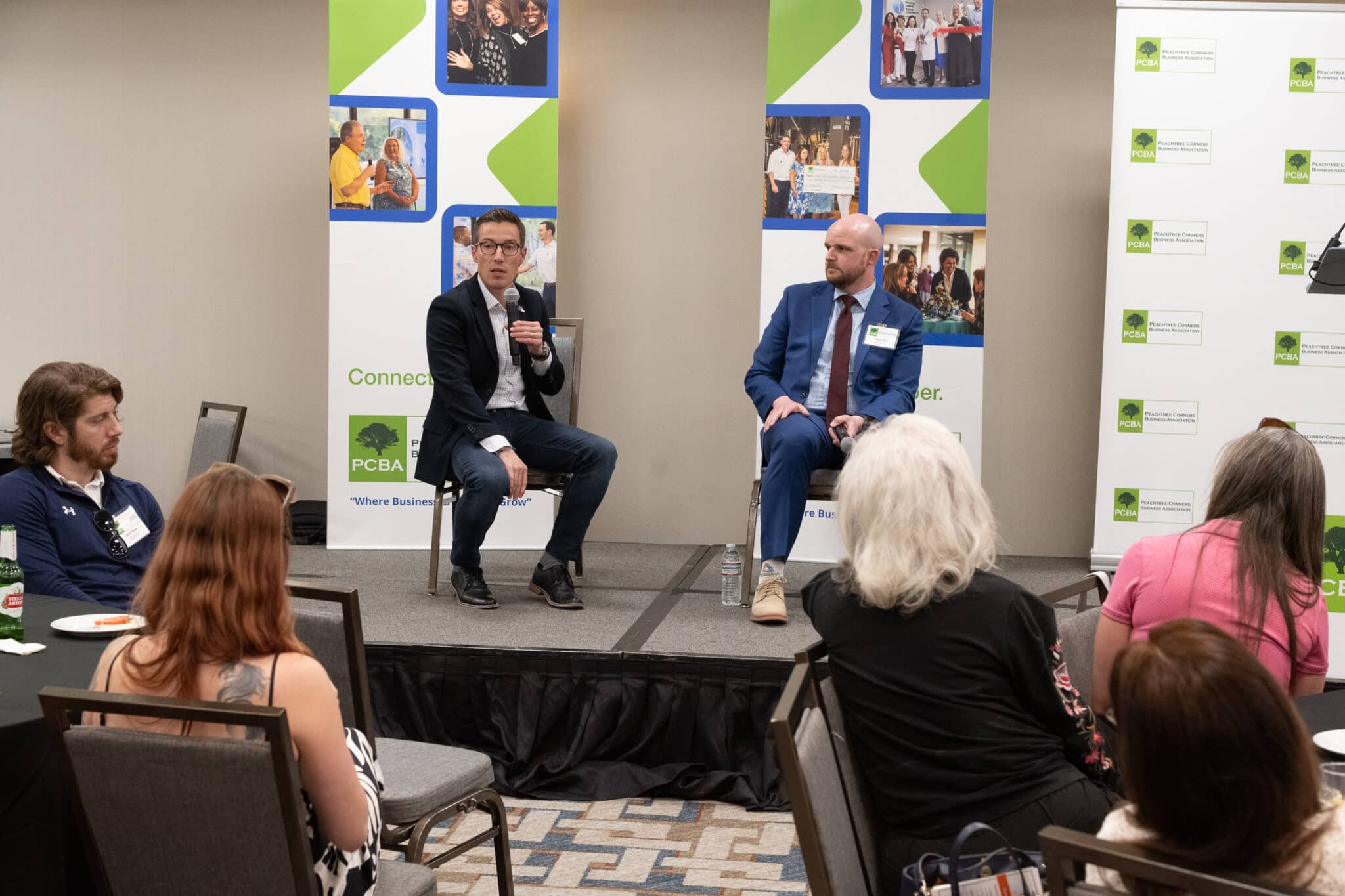
Most residents and business owners in Peachtree Corners probably think they know all about the economic development and strategic planning of Peachtree Corners, but do they really?
Peachtree Corners Business Association invited Peachtree Corners Economic Development Director Betrand Lapoire and Partnership Gwinnett Director of Economic Development Andrew Hickey to its After Hours Speaker Series on March 27 to discuss the city’s growth from a 1971 master plan to a bustling city with 42,000 inhabitants and 40,000 jobs.
Key points included the importance of business retention and expansion, with 24 projects last year creating 1,600 retained jobs, 1,600 new jobs and $250 million in new capital investment.
The Curiosity Lab, a world-class innovation center, was emphasized as a significant attraction. The city’s zoning and infrastructure plans were also discussed, focusing on balancing office and residential development to maintain a vibrant, sustainable community.
Matching jobs to residents
Although Peachtree Corners is just a teenager in terms of being an incorporated city, the foundation for this vibrant, fast-paced economic hub was laid more than 50 years ago by technology pioneer Paul Duke.
“Peachtree Corners was the first master-planned, business innovation technology park in metro Atlanta,” said Lapoire. “It was in response to the brain drain of technology with Georgia Tech graduates leaving the area.”
While the city may have a small-town feel, it’s the largest in Gwinnett County by population, but not land mass, he added.
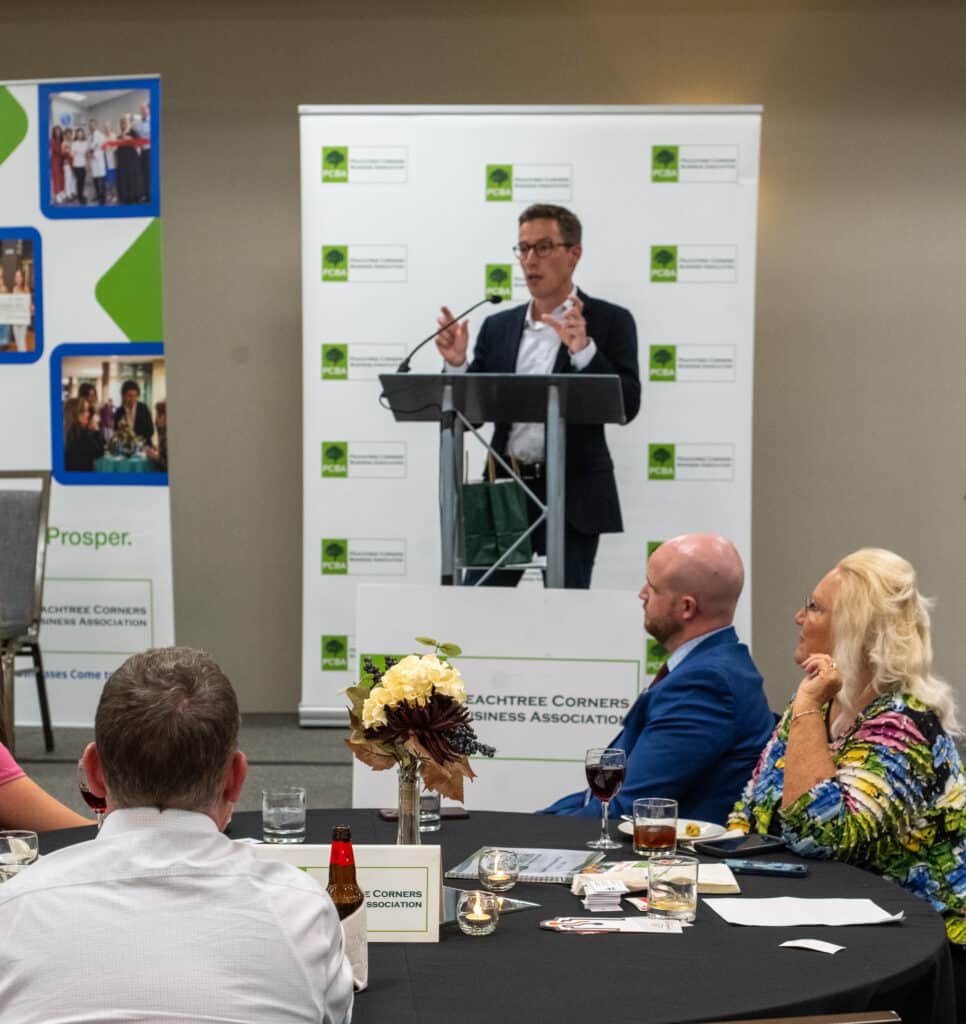
“The city started from a commercial, industrial, R&D base and then was expanded around it,” said Lapoire.
Though home to more than 42,000 residents, most of the jobs in Peachtree Corners are filled by people who live outside the city, he added.
“So we have this interesting mismatch, in a way, although not unusual,” said LaPoire. That creates traffic and transit issues. So that means that one of the solutions is to create more jobs here to fit the profile of the community.”
He presented charts that show professional services, consulting and engineering as the largest job categories. The next tier of businesses are wholesale and manufacturing.
“So we have a good mix of industry,” he said.
A five-year plan
The city has a five-year economic development plan (2023-2028) that outlines strategies for attracting and retaining businesses, with education and workforce development being key components.
Partnership Gwinnett has similar goals as Peachtree Corners, but on a larger scale.
“We are the county’s sales and marketing arm for all 17 cities now, and we receive funding from both municipal sources as well as existing businesses here — both in Gwinnett and outside of Gwinnett as well,” said Hickey.
He shared how Partnership Gwinnett is designed to drive a lot of major corporations toward doing business inside and with Gwinnett County.
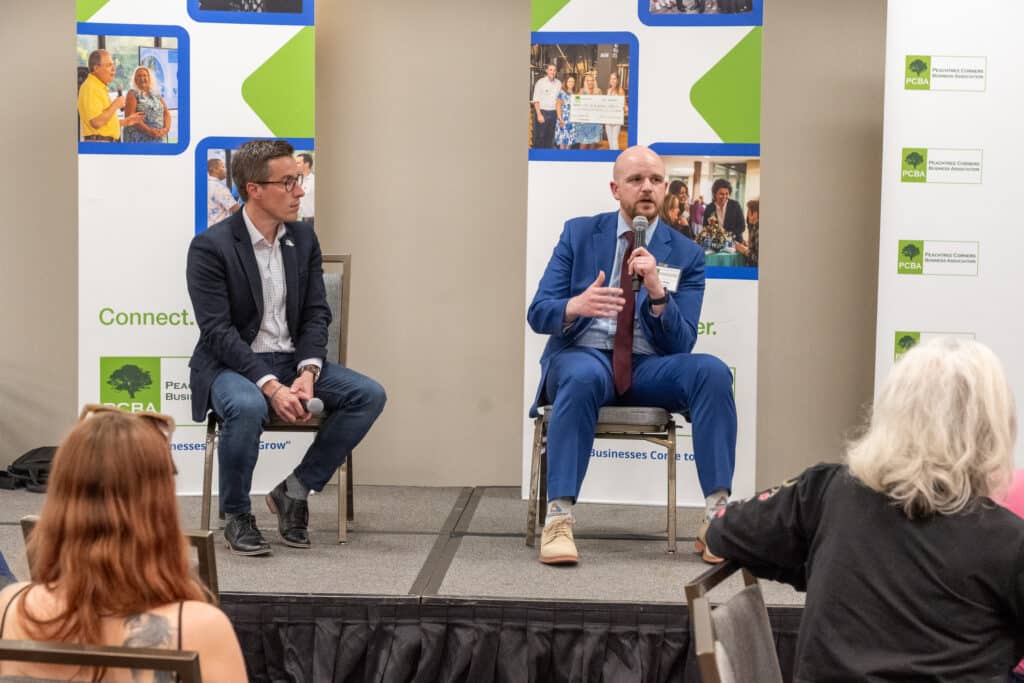
“One of the biggest things that we talk about that I’m sure it seems like most of us here, if you live here, you work here, you understand it. It’s the diversity that exists here in Gwinnett,” he said. “With a diversity index of 85, that means if we walk out of the Hilton here and we say hello to somebody, there’s an 85% chance they’re from a different ethnic or cultural background than ourselves, which to you and I may seem normal because that’s the life that we live in.”
He added that for companies, there’s a tremendous value in that, whether they have stated values, or they’re just making hiring decisions to get a wide range of candidates to fill those roles. Additionally, because of the proximity to Atlanta, Gwinnett County has a great labor draw.
Partnership Gwinnett
Partnership Gwinnett plays a significant role in recruiting businesses, expanding existing companies and developing the workforce. Hickey showed how the organization was involved with more than 24 projects last year.
“A majority of those were expansions, and that is a common thread you’ll see in economic development,” he said. “In business retention, expansion is so vital to working with our existing companies to make sure that they have the resources they need.”
He added that’s what leads to new investment and job creation in the community.
The organization also focuses on redevelopment projects, working with cities and the county to improve infrastructure and community amenities — especially strong educational institutions such Georgia Gwinnett College, Philadelphia College of Osteopathic Medicine and others.
Quality of life
In closing, both men stressed the importance of recruiting companies and developing the workforce, along with one aspect that means a lot but may not be as obvious — quality of life.
“It’s definitely evident that people like to work where they live — the whole live, work play experience,” said Hickey. “I joke that the part that people really have the most questions about, and are most excited to learn about, is new events at The Forum or Gwinnett Place Mall.”
Although they want to know what’s the next major company coming to Gwinnett, people REALLY want to know about how to spend their leisure time.
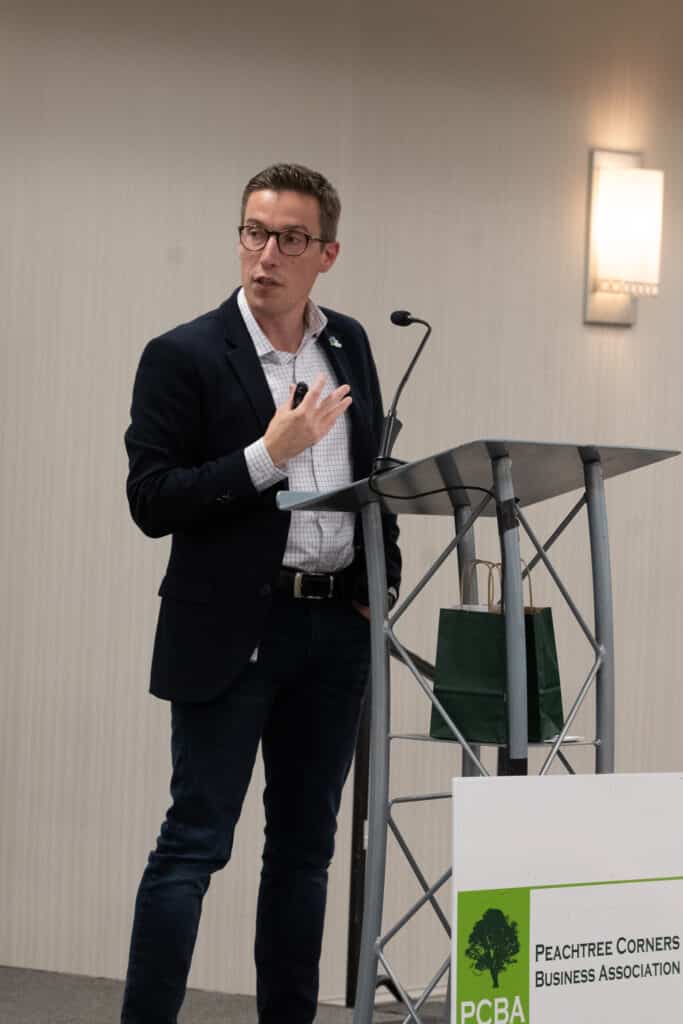
“That speaks to the importance of ensuring that we have a great community,” he said. “So at Partnership Gwinnett we work with all of our cities, and the county government as well, [on] a kind of a best-practices trip.”
He added that the peer tour allows everyone to know what the neighboring communities are doing and share the good news.
“We will take all of these elected officials, but also city staff, to different cities across the Southeast,” he said. “Last year, I believe they went to Huntsville, and have been to Greenville, Chattanooga — all cities that have done some really cool redevelopments that have taken their city to the next level. Our goal is to learn from them.”
Related
Business
Two Peachtree Corners Business Leaders Named Finalists for EY Entrepreneur Award
Published
3 weeks agoon
April 23, 2025
Ernst & Young’s Entrepreneur Of The Year celebrates ambitious entrepreneurs who are shaping the future
Ernst & Young LLP (EY US) recently announced the finalists for the prestigious Entrepreneur Of The Year 2025 Southeast Award, and two local, Peachtree Corners business leaders — David Quirk, president and CEO of DLB Associates Consulting Engineers PC and Erin Hanson, founder and CEO of Guardian Sports — made the list.
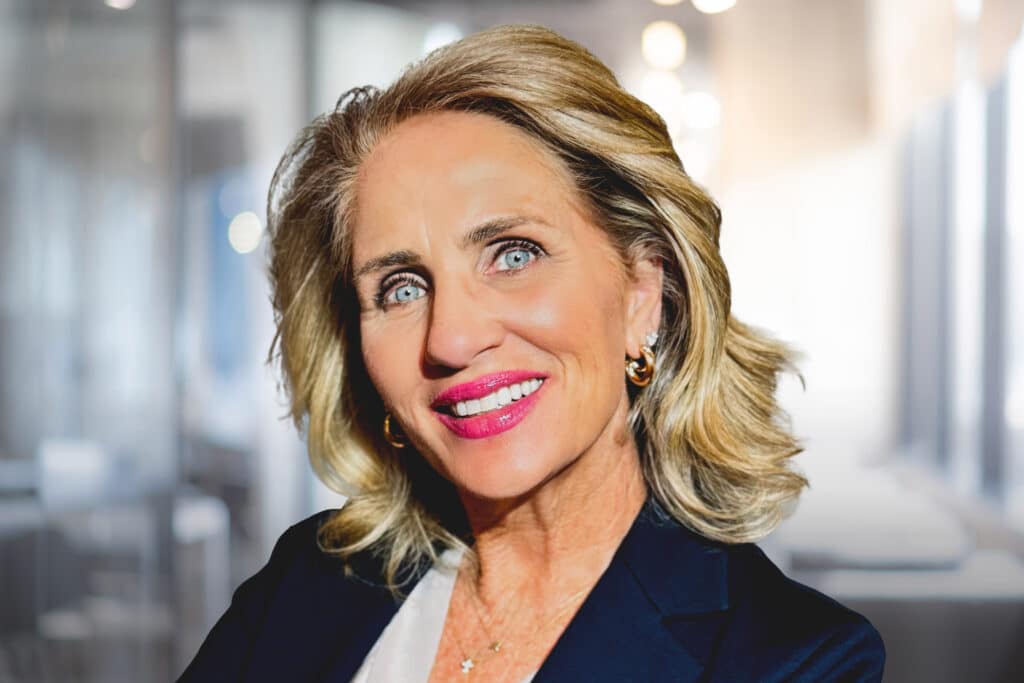
Hanson’s Guardian Sports is a family-owned company dedicated to serving athletes through safety and performance improvements in sports equipment. Major products include the Guardian Cap, PEARL ball and Guardian Infill serving the sports industry.
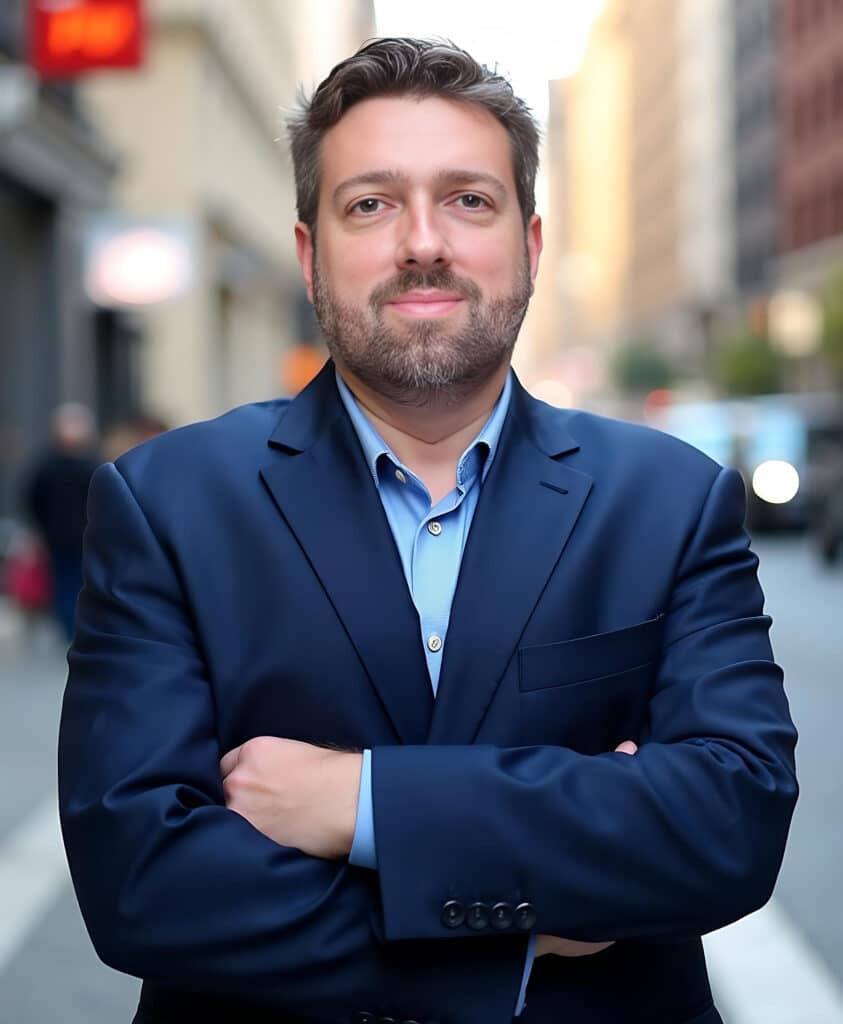
DLB Associates is a U.S.-based consulting engineering firm specializing in mission-critical and complex built environments. With more than 40 years of expertise, DLB delivers innovative, technology-driven solutions in engineering, commissioning and operations worldwide.
Celebrating entrepreneurial leaders
Now in its 40th year, Entrepreneur Of The Year recognizes the bold leaders who disrupt markets through the world’s most ground-breaking companies, revolutionizing industries and making a profound impact on communities. The program honors those entrepreneurs whose innovations shape the future and pave the way for a thriving economy and a hopeful tomorrow.
The Southeast program celebrates entrepreneurs from Alabama, Georgia, North Carolina, South Carolina and Tennessee.
An independent panel of judges selected 36 finalists for their entrepreneurial spirit, purpose, growth and lasting impact in building long-term value.
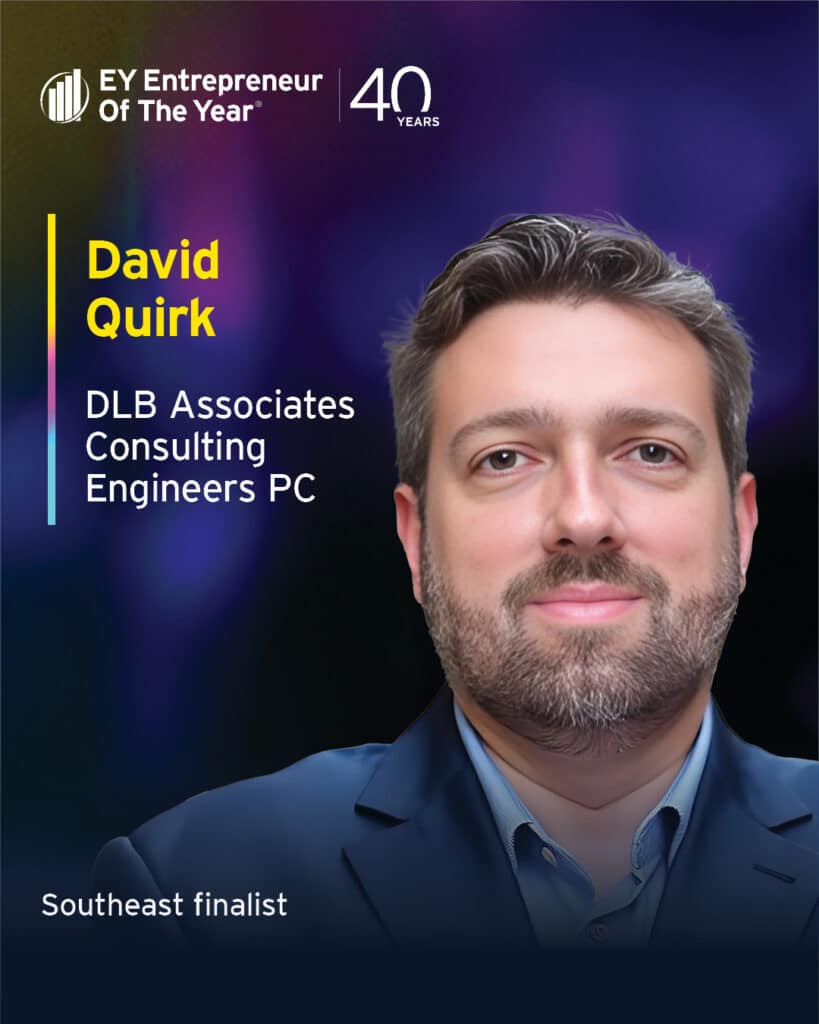

“This year’s finalists are leading examples of innovation, perseverance and resilience, illuminating paths to a brighter future for their industries and communities,” said Chevy Arnold, Entrepreneur Of The Year Southeast Program co-director.
“Their commitment to excellence transforms challenges into opportunities, inspiring us all,” added Kimberly Kicklighter, Entrepreneur Of The Year Southeast Program co-director.
Entrepreneur Of The Year honors many different types of business leaders for their ingenuity, courage and entrepreneurial spirit.
The program showcases original founders who bootstrapped their business from inception or who raised outside capital to grow their company; transformational CEOs who infused innovation into an existing organization to catapult its trajectory; and multigenerational family business leaders who reimagined a legacy business model to strengthen it for the future.
Including Quirk and Hanson, the 2025 Southeast finalists are:
- Marc Hodulich | 29029 | Atlanta, Georgia
- Damon Stafford | Alpine Intel | Charlotte, North Carolina
- Lou Hensley | Aspida | Durham, North Carolina
- Matthew Dent | Buffalo Rock Company | Birmingham, Alabama
- Melanie Little | Colonial Pipeline Company | Alpharetta, Georgia
- Will Bartholomew | D1 Training | Franklin, Tennessee
- Rene Diaz | Diaz Foods | Atlanta, Georgia
- David Quirk | DLB Associates Consulting Engineers PC | Peachtree Corners, Georgia
- Markus Scott | EyeQ Monitoring | Atlanta, Georgia
- Jon Gosier | FilmHedge | Atlanta, Georgia
- John Fitzpatrick | Force Marketing | Atlanta, Georgia
- Dr. Barry Patel | Galt Companies | Atlanta, Georgia
- Dr. Wade Smith | Galt Companies | Atlanta, Georgia
- Charles Gillespie | Gambling.com Group | Charlotte, North Carolina
- Kevin McCrystle | Gambling.com Group | Charlotte, North Carolina
- Mike Griffin | Griffin Brothers Companies | Cornelius, North Carolina
- Erin Hanson | Guardian Sports | Peachtree Corners, Georgia
- Dan Beem | Hissho Sushi | Charlotte, North Carolina
- Aaron Siegel | Home Team BBQ | Charleston, South Carolina
- Marc Murphy | Ignite Digital Services | Charleston, South Carolina
- Miller Chalk | Inglett & Stubbs, LLC | Mableton, Georgia
- Liza Rodewald | Instant Teams | Southern Pines, North Carolina
- Stephen Andresen | McClancy Foods & Flavors | Fort Mill, South Carolina
- Travis LeFever | Mission Mobile Medical Group | Greensboro, North Carolina
- Cyrus Mojdehi | Northway Homes | Charlotte, North Carolina
- Connor Ryan | NutraSky | Alpharetta, Georgia
- Fritz Owens | OTR Solutions | Roswell, Georgia
- Christopher Chuang | Relay, Inc. | Raleigh, North Carolina
- Kurt Jacobus | restor3d, Inc. | Durham, North Carolina
- Tom Kendrot | Shearwater Health | Nashville, Tennessee
- Teak Shore | Southern Lighting Source | Cumberland, Georgia
- Cindy Eckert | Sprout Pharmaceuticals | Raleigh, North Carolina
- Bryan Moore | TalkShopLive Inc. | Nashville, Tennessee
- Tina Moore | TalkShopLive Inc. | Nashville, Tennessee
- Igor Marinelli | Tractian | Atlanta, Georgia
- Joan Butters | Xsolis | Franklin, Tennessee
You can learn more about the finalists at ey.com/en_us/entrepreneur-of-the-year-us/southeast/winners-finalists.
Regional award winners will be announced on June 25 during a special celebration. The winners will then be considered by the national independent panel of judges for the Entrepreneur Of The Year National Awards, which will be presented in November at the annual Strategic Growth Forum®, one of the nation’s most prestigious gatherings of high-growth, market-leading companies.
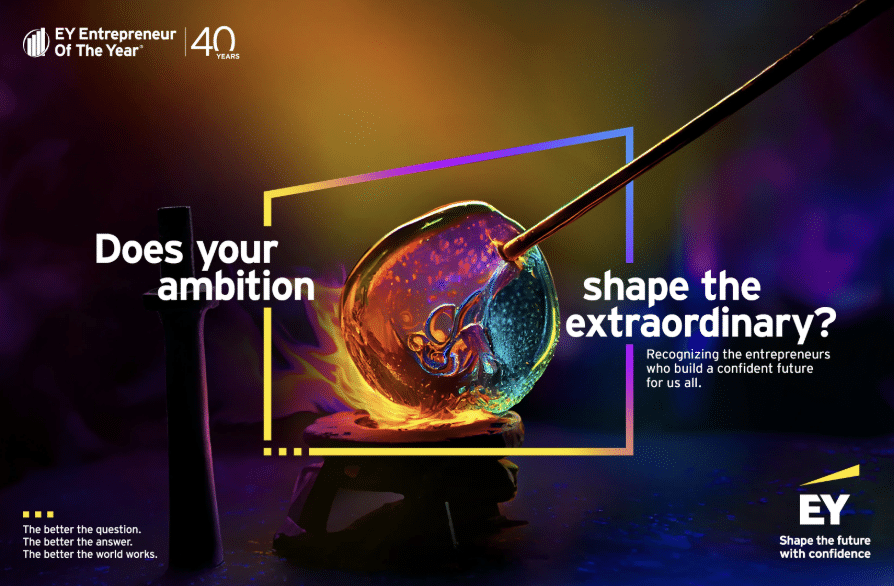
About Entrepreneur Of The Year
Founded in 1986, Entrepreneur Of The Year has celebrated more than 11,000 ambitious visionaries who are leading successful, dynamic businesses in the U.S., and it has since expanded to nearly 60 countries globally.
The U.S. program consists of 17 regional programs whose panels of independent judges select the regional award winners every June. Those winners compete for national recognition at the Strategic Growth Forum® in November where national finalists and award winners are announced.
The overall national winner represents the U.S. at the EY World Entrepreneur Of The Year™ competition.
For more about the award, visit ey.com/us/eoy.
Related
Business
SCB Construction Group Partners with CGA Reps on New Peachtree Corners HQ
Published
1 month agoon
April 15, 2025
SCB Construction Group, freshly rebranded from SteelCo, secures construction project with CGA Reps for new office HQ in Peachtree Corners
SCB Construction Group has announced a strategic partnership with CGA Reps to build a new office headquarters in Peachtree Corners. The project, encompassing approximately 26,000 square feet of innovative workspace, marks a significant milestone in advancing CGA Reps’ corporate vision while showcasing SBA Construction Group’s commitment to delivering transformative construction solutions.
In collaboration with Oakley Real Estate Partners — serving as developers of the project on behalf of CGA Reps — this venture reflects a united effort to bring cutting-edge design (from Smallwood architecture firm) and operational excellence to the commercial kitchen equipment industry.
The announcement follows several high-profile projects for SCB Construction Group in 2024, including a 72,500-square-foot manufacturing center and headquarters for Process Equipment & Controls, an impressive interior build-out for Courtesy Ford Conyers’ commercial service center and the Phase 1 completion for StoreEase Loganville — recently honored as a 2024 Smart Facility of the Year by Modern Storage Media.
A bold new chapter for CGA Reps
The new 25,890-square-foot headquarters is designed to be more than just a workplace — it is envisioned as an inspiring environment that serves both client engagements and employee creativity. CGA Reps is recognized as an industry expert in commercial kitchen equipment, representing leading manufacturers, warehousing, distributing and installing everything from fryers to commercial walk-in freezers.
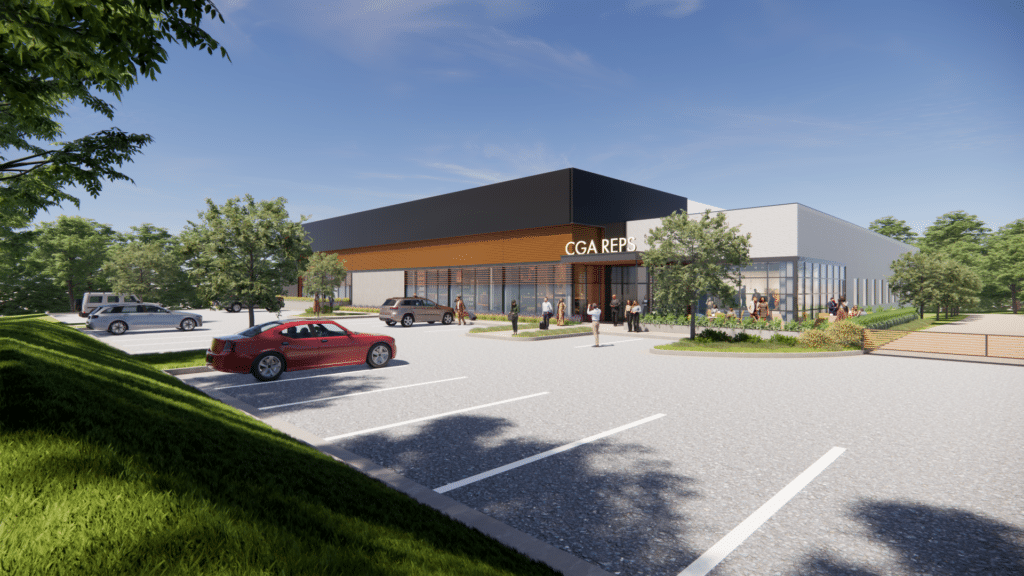
The facility’s design reflects this expertise, featuring a dedicated approximately 9,000-square-foot showroom kitchen that will host equipment demonstrations, tradeshows and webinars. This dynamic space will allow CGA Reps to showcase its comprehensive product range and provide clients with hands-on experiences of the latest commercial kitchen innovations.
A standout feature of the project is its innovative approach to stormwater management. With the site comprising only three acres, sufficient space for a traditional detention pond does not exist. To overcome this challenge, the design includes an underground detention system located beneath the truck court to efficiently handle all stormwater runoff.
This solution not only maximizes the use of the available land but also reinforces CGA Reps’ commitment to sustainable practices.
“We are excited to embark on this project with CGA Reps,” said Jay Bailey, CEO of SCB Construction Group. “This partnership underscores our commitment to customer excellence in design and construction, and it is a testament to the trust our clients place in our ability to deliver projects that not only meet but exceed expectations.”
Delivering excellence through proven expertise
SCB Construction Group’s track record in 2024 has been nothing short of remarkable. Earlier in the year, the company completed a 72,500 square foot manufacturing center for Process Equipment & Controls, integrating office space within a dynamic production facility.
This project was celebrated for its innovative design that balanced operational efficiency with a modern aesthetic, utilizing IMP panels to mimic tilt-up concrete, setting new standards for manufacturing environments.
Similarly, the interior build-out for Courtesy Ford Conyers’ commercial service center demonstrated SCB Construction Group’s ability to transform conventional spaces into functional and attractive environments that cater to both customer and staff needs.
The company’s commitment to quality and precision was again evident in the successful Phase 1 completion for StoreEase Loganville. This project, which recently earned the distinction of a 2024 Smart Facility of the Year by Modern Storage Media, highlights SCB Construction Group’s forward-thinking approach to construction and design, incorporating smart technologies and design that enhance sustainability and operational efficiency.
A rebranding that reflects a vision for the future
In a move that signals its evolution and growth, SCB Construction Group has recently rebranded from its former identity, SteelCo Buildings, as it spins off its construction division. This strategic rebranding is not merely cosmetic — it represents a renewed commitment to capabilities, credibility and client-focused service.
The refreshed brand is anchored by a new tagline “Deep Expertise, High Expectations” and a clear brand promise that communicates the company’s mission: to craft exceptional construction experiences based on precision, innovation and trust.
“Our rebranding is about more than just a new name or logo; it’s a renewed promise to our clients and communities,” explained Robert Lee, marketing director at SCB Construction Group. “We believe that our updated brand identity, including our invigorated tagline and mission statement, encapsulates our dedication to pushing the boundaries of design and construction. It reflects our commitment to creating spaces that are as inspiring as they are functional.”
Transforming spaces to inspire and connect
The new headquarters for CGA Reps is expected to become a landmark facility in Peachtree Corners. Beyond its impressive architectural design and advanced construction techniques, the building is planned as a hub for innovation and collaboration.
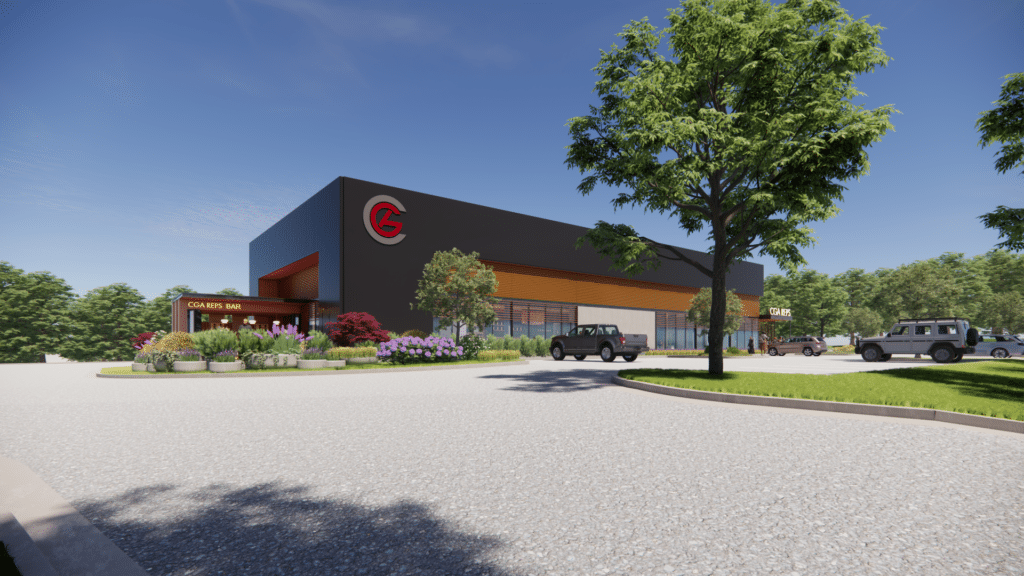
The interior build-out will include dynamic client reception areas, interactive meeting rooms, and dedicated spaces designed to foster creativity and teamwork among employees. The layout is crafted to ensure that every area of the facility contributes to a productive and inspiring work environment.
“By investing in this state-of-the-art facility, CGA Reps is making a strong statement about the future of work,” said Bryan Young, VP of construction at SCB Construction Group. “Our team is dedicated to designing and building spaces that not only serve the immediate needs of our clients but also create environments that motivate and inspire. The new headquarters will be a testament to that vision.”
Looking ahead
The partnership between SCB Construction Group and CGA Reps marks a significant step forward for both companies. As SCB Construction Group continues to build on its legacy of excellence and innovation, this project is poised to set a new benchmark for modern office headquarters design in the region.
With a strategic focus on creating spaces that inspire, connect and drive success, the future looks promising for both SCB Construction Group and its esteemed partner, CGA Reps.
For more information on the new headquarters project or to learn more about SCB Construction Group’s portfolio, visit scbcg.com.
Related
Read the Digital Edition
Subscribe
Keep Up With Peachtree Corners News
Join our mailing list to receive the latest news and updates from our team.
You have Successfully Subscribed!

Digital Edition

Official City Merchandise Line Debuts This Saturday at Town Green

Peachtree Corners Hosts Discussion About the Future of Local Policing

World Blood Donor Day Starts Here: Theo’s Miracle, Katherine’s Mission [Podcast]

Executive Function: A Tribute to Working Moms

Peachtree Corners Grows Business Opportunities Through Economic Development

D1 Training Brings New Fitness Concept to Peachtree Corners

Simpson Elementary Marks Exceptional Children’s Week

MomoCon 2025 to bring 60,000 Fans to Atlanta for a Weekend of Cosplay, Animation, Gaming and Music

Local Special Olympics Pickleball Team Honored with State House Resolution

Atlanta’s Dog Howl-O-Ween Festival Moving to Peachtree Corners for 2025

D1 Training Brings New Fitness Concept to Peachtree Corners

Peachtree Corners Hosts Discussion About the Future of Local Policing

City of Peachtree Corners Awarded Certificate of Achievement From GFOA for Seventh Straight Year

Simpson Elementary Marks Exceptional Children’s Week

Executive Function: A Tribute to Working Moms

Light up the Corners [Video]

Capitalist Sage: Business Leadership in Your Community [Podcast]

Cliff Bramble: A Culinary Adventure through Italy

Top 10 Brunch Places in Gwinnett County

A Hunger for Hospitality

THE CORNERS EPISODE 3 – BLAXICAN PART 1

Top 10 Indoor Things To Do This Winter

The ED Hour: What it takes to Remove Barriers from Education

Peachtree Corners Life
Topics and Categories
Trending
-
Fitness4 days ago
D1 Training Brings New Fitness Concept to Peachtree Corners
-
Pets & Animals3 days ago
Atlanta’s Dog Howl-O-Ween Festival Moving to Peachtree Corners for 2025
-
Sports2 days ago
Local Special Olympics Pickleball Team Honored with State House Resolution
-
Around Atlanta1 day ago
MomoCon 2025 to bring 60,000 Fans to Atlanta for a Weekend of Cosplay, Animation, Gaming and Music






